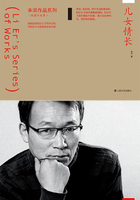Of course she had thought a good deal--though her father did not know it--of love. She had seen upon other people the effect of the possession of this gift of love, how it had caused them to forget pain and poverty, and shame, and infamy, and God, and death, and hell. Ah! that was love--that was love! and she had hoped that one day such a gift of love would be given to her; for it was surely the thing that was best worth having in the world! Once or twice she had fancied that it was at the point of being given to her. There had been certain thrilling passages between herself and two men,--an interval of a year between each,--and there had also been a kiss in an alcove designed by her dearest friend, Ella Linton, for the undoing of mankind, a place of softened lights and shadowy palms. It was her recollection of these incidents that had caused her to fumble with the blind cord when her father had been suggesting to her the disadvantages of inexperience in matters of the heart. But the incidents had led to nothing, except, perhaps, a week or two of remorse. But she could not help feeling, when that month of curious doubt was upon her, that the little thrill which she had felt when one man had put his arm around her for an instant, when another man--he was very young--had put his lips upon her mouth--it was a straightforward kiss--suggested a nearer approach to love than she had yet been conscious of in the presence of George Holland. (He had never done more than kiss her hand. Is it on record that any man did more when dressed with the severity of the cleric?)
This was a terrible impression for a young woman to retain before her engagement to a man has passed into its third month. Then she began to wonder if all her previous ideas--all her previous aspirations--were mistaken. She began to wonder if this was the reality of love--this conviction that there was nothing in the whole world that she would welcome with more enthusiasm than an announcement on the part of her father that he was going on a voyage to Australia, and that he meant to take her with him.
And then----
Well, then she threw herself upon her bed and wept for an hour one evening, and for two hours (at intervals) another evening; and then looked up the old published speeches made by a certain cabinet minister in his irresponsible days, on a question which he had recently introduced. Her father was bitterly opposed to the most recent views of the minister, and was particularly anxious to confront him with his own phrases of thirty years back. She spent four hours copying out the words which were now meant by Mr. Ayrton to confound the utterer.
第一章CHAPTER III. THE BISHOP KNEW SOMETHING OF MAN, AND HE KNEW SOMETHING OF THE CHURCH; HE EVEN KNEW SOMETHING OF THE BIBLE.
Her father when he came in commended her diligence. He read over those damning extracts, punctuating them with chuckles; he would make an example of that minister who had found it convenient to adopt a course diametrically opposed to the principle involved in his early speeches.
He chuckled, reading the extracts while he paced the room, drawing upon his stock of telling phrases, which were calculated to turn the derision of the whole House of Commons upon his opponent.
Thus, being very well satisfied with himself, he was satisfied with her, and kissed her, with a sigh.
"What a treasure you are to me, dearest one!" he said. There was a pause before he added, in a contemplative tone:
"I suppose a clergyman has no need ever to hunt up the past deliverances of another clergyman in order to confound him out of his own mouth. Ah, no; I should fancy not."
Regret was in his voice. He seemed to suggest to her that he believed her powers would be wasted as the wife of a man who, of course, being a clergyman, could have no enemies.
"Dearest papa!" she cried, throwing herself into his arms, and sobbing on his shirt front, "dearest papa, I will not leave you. I don't want to be anyone's wife. I want to be your daughter--only to be your daughter."
He comforted her with kisses and soothing smoothings of the hair. No, no, he said; he would not be selfish. He would remember that a father was the trustee of his child's happiness.
"But I know I can only be happy with you, my father!" she cried; but it was of no avail. He, being a father and not a mother, was unable to perceive what was in the girl's heart. He considered it quite natural that she should be a trifle hysterical in anticipating her new life--that strange untraveled country! Ah, is there anything more pathetic, he thought, than a girl's anticipations of wifehood? But he would do his duty, and he fancied that he was doing his duty when he put aside her earnest, almost passionate protestations, and told her how happy she would be with the man who was lucky enough to have won the pure treasure of her love.
What could she do? The terrible doubts of that month of doubting broadened into certainties. She knew that she did not love George Holland; but she had not the courage to face Philistia as the girl who did not know her own mind. Philistia was very solid on such points as the sacredness of an engagement between a man and a woman. It was a contract practically as abiding as marriage, in the eyes of Philistia; and, indeed, Phyllis herself had held this belief, and had never hesitated to express it. So nothing was left to her but to marry George Holland. After all, he was a brilliant and distinguished man, and had not a score of other girls wanted to marry him? Oh, she would marry him and give up her life to the splendid duties which devolve upon the wife of a clergyman.
But just as she had made up her mind to face her fate, Mr. Holland's fate induced him to publish the book at which he had been working for some time. It came out just when the girl was becoming resigned to her future by his side, and it attracted even more attention than the author had hoped it would achieve.














